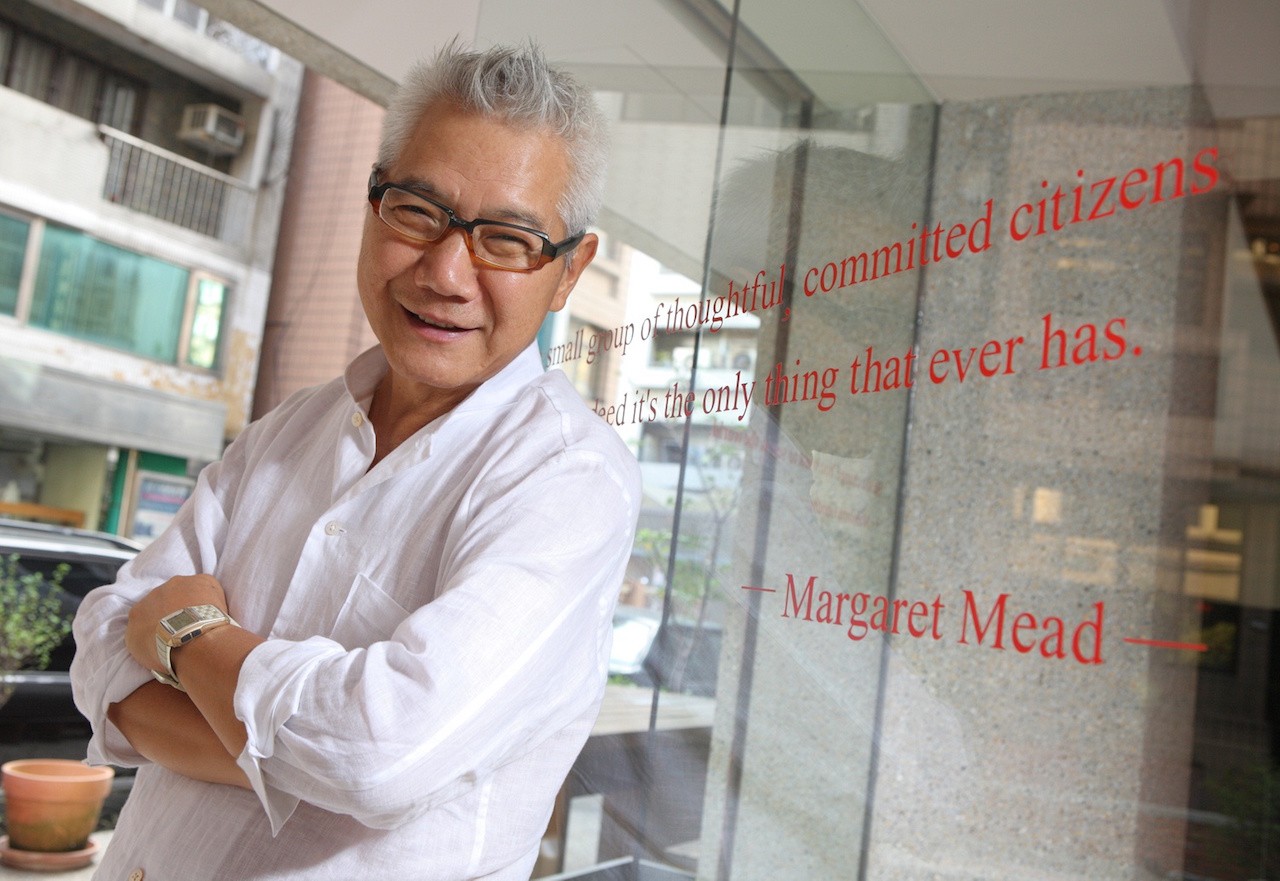Following plenty of successful enterprises, Chu founded the Canmeng Institute in 2008 and the “Ripplemaker Foundation” in 2010, both of which aim to support young entrepreneurs. Additionally, he is the author of Businessmaker, Daymaker, Ripplemaker, where he outlines the core philosophy underpinning the great variety of businesses he was and still is involved in.
Partially due to his academic upbringing overseas, partially thanks to his easy-going and adventurous personality, Chu over the course of time has built lasting friendships with people from all over the world.
At his Red Room, a venue for artists to display their works or read poetry, individuals from different cultures mingle. For Chu, the Red Room is a way of connecting international artists to Taiwan.
“I don’t pay for them to produce art. Rather, I simply provide them with a space where they can work together and inspire each other. In the end, many artists and friends really want to stay in Taiwan.”
This is even more surprising since average salaries in Taiwan are still exceptionally low for the most part, while visa requirements at the same time put unnecessary obstacles in the way of foreigners wishing to work. Yet Chu says that Taiwan and its liberal culture help balance out the disadvantages of the conservative labor market.
Many of his foreign friends adore the lifestyle and friendships with locals, and he expects that many more will decide to stay once the recently passed act bears fruit.
Chu is aware that the act is not only met with support, but has also engendered a fair share of criticism. To be sure, many approve of it and argue that having more foreign professional will assist Taiwan’s economy to become more competitive.
At the same time, however, others worry that it will undermine job opportunities for locals.
“Hiring a foreign professional needs a certain budget, which usually can only be afforded and rendered feasible by certain industries such as finance, pharmaceutics, or the tech sector,” Chu believes that the act would not result in rising unemployment among locals as foreigners would not compete for the jobs that local can do. Rather, a more competitive economy will create more local job opportunities.
Ultimately, Chu hopes that the act will succeed in attracting well-educated foreign talent and benefit the island nation economically and culturally.
With the legal framework finally being revised, a more welcoming working and living environment for foreigners should emerge over the next decade. Combined with Taiwan’s many other advantages, the introduction of an internationalized job market could do wonders for the nation’s development.
文章來源 : Meet創業小聚


